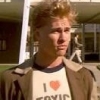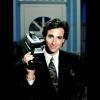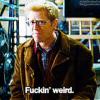Leaderboard
Popular Content
Showing content with the highest reputation on 08/06/19 in all areas
-
4 pointsIs this gonna be another Rockula situation: one that demands HDTGM to cover it?
-
2 pointsHi all, I write to you from the hinterlands of New Brunswick to brighten your day and torment your nights with a film that I can’t believe has not been done on the podcast. It’s a superhero movie, sort of, starring Alan Arkin and Christopher Lee. It’s a coproduction between Australia and the USA from the early 80s. It has probably the worst superhero origin onscreen or off that I can think of. Prepare yourself for the Man of Magnet himself; it’s The Return of Captain Invincible, and you can watch it on YouTube here: https://youtu.be/TvHLCDL4B8Q Enjoy. I’m sorry.
-
2 pointsI can't really say that I love any of them, but I still think Sky Captain and the World of Tomorrow was pretty decent.
-
1 pointDemi Moore and Michael Biehn are a young couple who discover their unborn child could signal the end of the apocalypse.
-
1 point
-
1 pointTruly it's the only course of action anyone should ever take.
-
1 pointThough with this movie I could be equally convinced that they just forgot to film another scene with Ron Eldard.
-
1 pointAs has been established in previous HDGTM she should have gone into a restroom and splashed water on her face in order to do that. Let's not make excuses for bad decisions.
-
1 pointGlad this has finally been made public. It’s for the greater good. Warts and all.
-
1 pointI was at the live recording of this episode, and found myself surprised by how much of the conversation centered on what exactly this movie was saying, as opposed to how it was saying that. My own interpretation of the movie is a bit different in places from what June and Jason said, but I felt like I needed to come here to provide some counterpoints to what Paul and Casey said. Team "Sanity" seemed to view this purely as a horror story. In doing so, they missed the obviously intended, although less than perfectly executed, message of the movie. I thought it was clear that the movie was, broadly speaking, the story of a person who had a traumatic, repressive childhood, was forced to abandon her inner child, forced to abandon her means of addressing her issues, and then grew into a repressed adult. As an adult, she recovers her means of dealing with her issues, and escapes toxic influences. While doing so, she is able to reintegrate her whimsical and free-spirited personality traits. Fred, and his intervention in her life, is meant to serve as an allegory of sorts for how this might happen. Fred is, like Jason said, basically pure id. He also takes on the traits(e.g. the English accent) of the father Elizabeth wishes was present and supportive. He also has the mindset of the 5-6 year old boys Elizabeth would have known at the age Fred first appeared. Thus, he is in some regards tailored toward what the younger Elizabeth would want or expect from a supportive friend. However, as a consequence of being pure Id with a stereotypical little boy's attitude, Fred's attempts to help aren't as productive, exact, or direct as they could be. In this way, Fred and his actions are a metaphor for how a traumatized, repressed person's mind tries to deal with those issues. People dealing with those issues aren't, at least most of the time, going to address them in the same direct and logical way they would address a physical injury. Their brain will come up with ways of coping, but those methods will be messy and often unsuccessful. To wit, the part of them dealing with the issue will be mostly subconscious and similar to Fred in its approach and effectiveness, albeit in a less over-the-top way. Fred, as Elizabeth's means of helping her resolve these issues and embrace her inner child, is messy and often misguided in his actions. However, he does eventually lead her towards resolving them. One example of him actually helping her do so was with Mickey. Mickey saw her breaking from the norm and liked it. Although he misunderstood the situation and turned out to be a bit crazy himself, his reaction showed Elizabeth that she could find people to accept and embrace her for breaking the repressive norms forced on her. Thus, he helped her move towards being an independent person who embraced her own weirdness. Paul said he thought it was a bit lackluster that Mickey was only "an option" for her at the end, but his being so was entirely the point. The movie shows Elizabeth becoming an independent woman and, as such, she wouldn't need to go from one guy to another. She would need to be able to accept herself and live on her own. Mickey showed her that she could do so without sacrificing the possibility of relationships, even if he wasn't exactly perfect for her. As for the issue of what Fred is, I take something of a middle ground between what we heard on the podcast. I think it is undeniable that Fred is tied to Elizabeth's mind. As such, he has taken on her id, repressed whimsical/childlike traits, subconscious impulses to rebel, and some of her memories. One sign of this is in the letter he writes that is supposedly from Charles. In order to write that letter, he would have to know things about their relationship and how Elizabeth would want Charles to view those parts of their relationship. Those things happened while Fred was trapped. If Fred were some completely independent being, he couldn't have known what to write. Further, at a salient moment late in the move, we see that he does indeed have traits of Elizabeth's hitherto repressed inner child. Elizabeth breaks a window and says "I love those window breaking noises!" Fred did the same earlier in the movie during a flashback. So, we see that as Elizabeth breaks free from her repressed state, she is integrating and expressing those attitudes that could previously be expressed only by a proxy. With that said, I think there is also a Monsters Inc.-esqe thing happening here. I think Fred and the other imaginary friends are meant to be independently existing beings that can move from child to child when their job is done, but they take on the attitudes, memories, etc. that the child is trying to deal with. This ties into how they are metaphors for how people respond to mental illness, trauma, repression, etc. Many people have such issues and may react to them in similar ways, but ultimately each individual is unique. Consequently, their defense mechanisms are tailored to their unique experiences. The imaginary friends similarly tailor themselves to the unique experiences of whichever child they are with. So, ultimately, Fred isn't just some completely independent being, but he isn't just an avatar doing the things Elizabeth was actually doing herself. This movie had its fair share of flaws in how it attempted to execute the plan its filmmakers had. The film didn't do a good enough job at establishing the "rules" of Fred, and Fred's motive was not always obvious enough through his over-the-top, often destructive actions. The movie is very flawed in that regard. With that said, the movie had more laughs than Paul gave it credit for. The restaurant scene, for example, was comedy gold. Ultimately, the ending left me glad I saw this movie, despite large portions that simply weren't as well executed as they could have been. So... #Team Fred
-
1 pointThat lazy design drove me wild as a kid since there are other materials from the time where he is much more horse-like. The movie's poster art even! I mean you look at all the other cousins and it's clear what animals they're supposed to be, and then there's this alleged horse. A longer snout would have done wonders. Teat Heart Pig was allowed to have a snout and the design is better for it.
-
1 pointI still think Mortal Kombat is a good movie, and I feel it's still one of the better game adaptations out there. Solid cast, solid choices for the time, solid theme song.
-
1 pointTo be fair to doxrus, they were responding to my claim that Team Sanity seemed to have a more analytical approach to their criticism and Team Fred having a more emotional approach. In that post, I didn't mean to imply any negative connotations with the use of the word "emotional" - especially considering I'm Team Fred myself I just didn't want too much to be laid on doxrus when I was the one who brought it up. I didn't mean for it to sound like one interpretation is better than the other, or that there was an insurmountable divide between the two. I think doxrus' point, and the point I was trying to make, is that ultimately, when you are having a two-sided debate, and one side is affected emotionally by a piece of art and the other side isn't, it's difficult (but not necessarily impossible) to rectify that. And, as played out (hilariously) in the episode, it often just leads to a circular argument. They aren't suggesting that we are "blinded by emotion" anymore than we believe them to be "cold, emotionless robots." But you can't make someone feel something if they just don't. I can go on and on about how something affected me on an emotional level, but if you don't feel that same feeling at all (not to suggest that you're incapable of feelings period), then I'm never going to change your mind. By the same token, if it didn't affect you emotionally, you can point out every single flaw and logical inconsistency in the movie until you're blue in the face, but it's not going to change the fact that it did work on some level. That being said, I think your description is better. You're saying the same thing I was trying to, but worded it far better. P.S. Glad to have you both on the boards
-
1 point
-
1 point
-
1 pointThis movie had a lot of great ideas, and the set designs are still really nice, but it always felt so choppy to me, like entire scenes were missing or cut. I read a while ago there were a lot more gory torture scenes filmed, which you see bits and flashes of but have to pause the film to make out, but the studio scrapped them for the final cut. Can't imagine June liking this one at all. I can't watch eye violence either. And like 95% of old Italian horror (which I love) is all eye violence, which sucks, and I always forget, and then I spend the next few minutes after gagging. A tip for anyone, that website Does the Dog Die has all kinds of "does this movie have ____" yes or no questions and eye violence is one of them. It's been a real help for me.
-
1 pointToo good. Doesn't belong on this podcast. Well, at least Mad Max and The Road Warrior. Beyond Thunderdome is up for grabs.
-
1 point
-
1 pointA truly devastating chapter. Michael, I am so impressed with your sensitivity as a reader and your ability to tie the book’s themes to our lives today. One thing to consider, at the time the book was written, the concept of the “self-made man” was relatively new and in vogue. I think the book is clearly, in part, a response to that. We may want to believe we can simply, through force of will, reshape our lives, but the book demonstrates the many factors that prevent us from doing that: our own characters, social customs, religious customs, pure, dumb chance, and possibly even fate. I think we often use the myth of the self-made man to look down on those who haven’t made it, who are obscure (trumpet sound). We accuse them of simply not trying hard enough. We can see this play out in social policy as some believe we should not help the less fortunate with welfare, etc. I think Hardy’s position is, when good men like Jude can fail so spectacularly, we can all fail—let’s have some empathy and work on reforming the things we can control. Thank you again, Michael, for taKing this so seriously. This is my favorite podcast.
-
1 pointI had read Jude the Obscure long long ago, and didn't remember a whole lot about it, but did remember the events of this chapter (let's face it, they'd be hard to forget), so I was wondering how Michael would handle it, given his frequent repetition of what he hoped for as a culminating event in the book. He rose to the occasion, and dealt with it with the gravitas it deserves. To the best of my knowledge, this is pretty much the most horrible and devastating incident in all of English literature, if not beyond. Incidentally, one matter from last week (figuring that nobody will be reading a week-old topic): as to Jude and Sue marrying, we were told only that they went to London for a few days, and upon returning let the neighbors know that they'd tied the knot. But we the readers didn't know it directly, and Hardy never affirmed it himself.
-
1 pointtake a look at what the filmmakers had to say - https://www.youtube.com/watch?v=rpVN5GgydPI They meant Fred to be a manifestation of Lizzie
-
1 point
-
1 pointWhat breaks your brain with this movie is that Brendan Fraser should learn early on that EVERY wish he makes is going to blow up on him and yet he keeps making vague wishes that have such easily-exploitable loopholes, the Devil doesn't even need to try that hard. If you're doing a kind of unserious arse-ing around comedy like Peter Cook and Dudley Moore, it's fine because we're in on the joke, but this is played as such a sincere spiritual journey for him, it just makes him look like Earth's greatest idiot.
-
1 pointThis movie was awesome. When you look at it as more of a sci-fi thriller instead of horror, you should find it much more enjoyable.
-
0 pointsJESSE FARRAR asks The Boys for advice on how to get his big break.
This leaderboard is set to Los Angeles/GMT-08:00
-
Newsletter


















